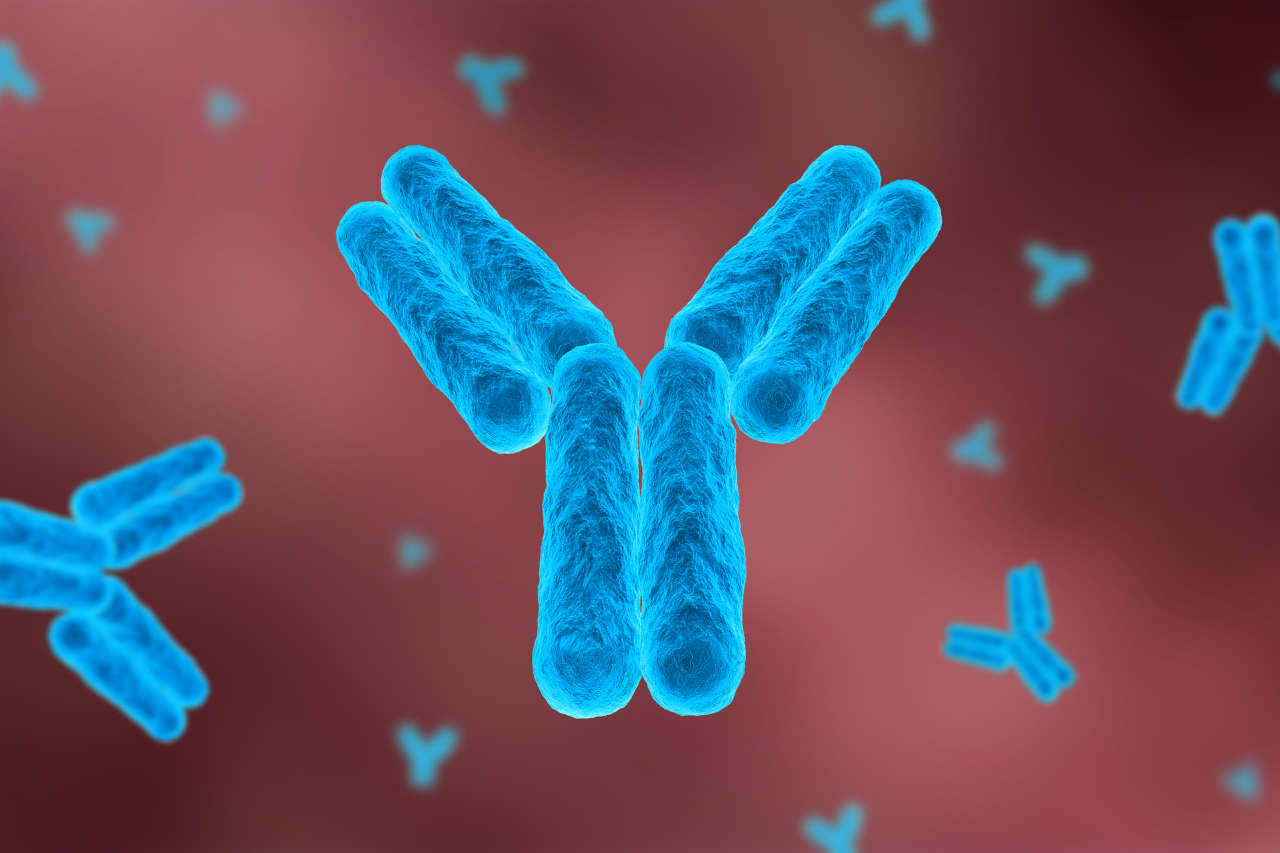
Five decades have passed since the term “common variable immunodeficiency” was first used in medicine. Still, many questions remain unanswered, and some answers are ambiguous. In this article, we will look at the latest evidence to answer some of the common questions about this condition.
Makipag-usap sa isang Espesyalista
What Is Common Variable Immunodeficiency?
Common variable immunodeficiency (CVID) is an umbrella term for immune disorders that cause low levels of infection-fighting proteins called mga immunoglobulin. As a result, people with CVID are more likely to experience frequent infections of the ears, sinuses, lungs, and digestive tract.
Ang iba pang mga pangalan para sa kundisyong ito ay:
- Common variable hypogammaglobulinemia
- Hypogammaglobulinemia, acquired
- Immunoglobulin deficiency, late-onset
- Idiopathic immunoglobulin deficiency
- Primary antibody deficiency
- Primary hypogammaglobulinemia
There are over 400 conditions that cause immunoglobulin deficiency. They are known as primary immunodeficiencies. Of them, CVID is relatively common, hence the name.
However, CVID overall is rare, affecting fewer than 5,000 Americans. CVID is a long-term (chronic) condition that often requires lifelong treatment.
What Causes Common Variable Immunodeficiency?
In about 90% of cases, researchers are not certain what exactly causes CVID. They believe both environmental and genetic factors may be responsible.
Genetic changes (mutations) that cause CVID may be passed down from parents to children. In other cases, they may occur randomly or after exposure to triggers. Potential triggers include UV radiation and viral infections.
Mutations in the genes that regulate B cell function are likely the culprit. B cells are specialized white blood cells; they produce immunoglobulins or antibodies. People with CVID have enough B cells, but these cells do not make enough antibodies.
What Are the Risk Factors?
CVID can affect anyone, irrespective of age or sex. Nonetheless, it often affects adults, and most people are diagnosed between ages 20 and 50.
What Are the Symptoms of Common Variable Immunodeficiency?
Symptoms may be mild or severe and can vary from person to person. They can include:
- Nagging cough (sometimes, coughing up blood)
- Hirap sa paghinga
- Pagtatae
- Pagduduwal
- Pagsusuka
- Pagbaba ng timbang
- Ear infections
- Sinus infections
- Repeated lung infections, possibly leading to bronchitis or pneumonia
- Unusual response to vaccines
- Abnormal liver
- Low platelet count
- Swollen joints
- Sakit ng kasukasuan
- Enlarged spleen
- Swollen lymph nodes
- Red or purple spots on the skin
How Is Common Variable Immunodeficiency Diagnosed?
Your provider might suspect CVID if you have characteristic symptoms and risk factors, such as:
- Frequent ear, sinus, or lung infections
- Unusual response to vaccines
- A family history of the condition
To confirm the diagnosis, your doctor will order blood tests. These tests will help your provider determine antibody levels and how well your body responds to a vaccine.
If your provider is sure you have CVID, they will recommend yearly tests to detect complications. Complications include autoimmune disorders, cancers, and lung problems. Tests may include:
- Blood tests
- Imaging tests
Kumuha ng Tulong Pinansyal
How Is CVID Treated?
No cure for CVID exists; however, there are several treatments to keep your condition in check.
Once the diagnosis is confirmed, your provider will likely give you immunoglobulin (IgG) replacement therapy. It contains antibodies obtained from healthy donors.
There are two ways you can receive donor-derived antibodies:
- Intravenous immunoglobulin (IVIG): IVIG is administered into a vein through a needle. The usual dose is 400 – 600 mg/kg every 2 to 4 weeks.
- Subcutaneous immunoglobulin (SCIG): SCIG is given as a shot under your skin. The usual dose is 160 mg/kg once a week.
Most people respond well to IgG replacement therapy. It is highly effective in reducing the recurrence of infections and joint problems. Likewise, IgG therapy reduces the severity of complications, such as autoimmune disorders. People often need treatment for their lifetime.
During the therapy, your healthcare provider will monitor you for side effects. Common side effects include backache, nausea, vomiting, chills, fever, muscle pain, and fatigue. To reduce the odds of such reactions, premedication may be necessary.
Your provider may prescribe antibiotics to treat infections. In some cases, antibiotics may be used regularly to prevent infections.
Other treatments are specific to the system involved. For example, vitamin B12 injections may help someone with digestive problems leading to B12 deficiency. Likewise, those with breathing difficulty may benefit from inhaled corticosteroids and similar medications.
If you have a low platelet count, it is best to avoid aspirin. Moreover, people with CVID should not receive live virus vaccines. Examples include the chickenpox vaccine and the MMR vaccine.
Treatment Can Be Challenging in People With COVID
COVID-19 may be more severe in people with immunodeficiencies like CVID, though a clear association is lacking. Most people with CVID at risk of COVID-19 are treated with convalescent plasma or IVIG.
What Are the Complications of CVID?
CVID can make you more likely to get:
- Mga karamdaman sa autoimmune. These disorders cause your immune system to destroy the body’s healthy tissues. People with CVID are at higher risk of developing immune thrombocytopenia o autoimmune hemolytic anemia.
- Bronchiectasis. This occurs when there is irreversible damage to the lungs due to repeated infections.
- Cancers. Blood cancer and stomach cancer occur more frequently in people with CVID.
Can Women With CVID Get Pregnant?
Thanks to IVIG, women with CVID can get pregnant without any additional risks. However, they should receive periodic IVIG therapy with customized doses to reach the desired IgG levels in the newborn [1].
What Is the Life Expectancy of a Person With CVID?
With timely diagnosis and appropriate treatment, most people live well into adulthood. The key factors that affect life expectancy are:
- Severity of autoimmune disorders
- Recurrent infections, particularly those affecting the lungs
- Development of cancers
IVIG and antibiotic therapy have dramatically reduced deaths due to bacterial infections. Most deaths occur due to noninfectious complications, such as cancers.
Makipag-usap sa isang Espesyalista
What Is the Difference Between CVID and IgG Deficiency?
CVID causes low levels of almost all immunoglobulin classes, whereas IgG deficiency is when you have low levels of immunoglobulin G (IgG). The five major immunoglobulin classes are IgA, IgG, IgM, IgD, and IgE.
What Infections Are Common in CVID?
The most frequent infections in CVID are those involving the ears, sinuses, and respiratory tract.
Five decades have passed since the term “common variable immunodeficiency” was first used in medicine. Still, many questions remain unanswered, and some answers are ambiguous. In this article, we will look at the latest evidence to answer some of the common questions about this condition.
MGA SANGGUNIAN:
- Kurecová, B et al. “Bezný variabilní imunodeficit v tehotenství (soubor kazuistik)” [Common variable immunodeficiency in pregnancy (set of case reports)]. Ceska gynekologie vol. 74,3 (2009): 197-201.














